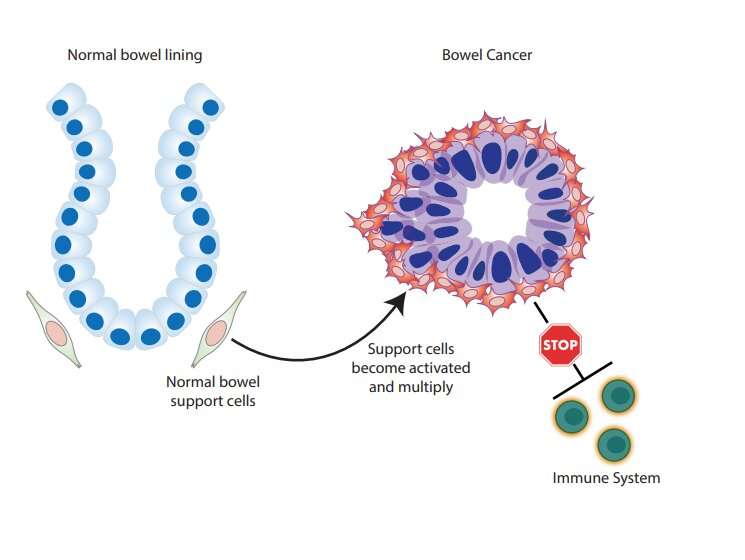
Researchers at SAHMRI and the University of Adelaide have pinpointed a tumor support signal that works to suppress the immune system. Blocking this signal may prove pivotal in stopping bowel cancer.
Like most cancers, bowel cancers are surrounded by many normal cells that are corrupted to support cancer growth. The international team, led by Associate Professor Susan Woods and Associate Professor Daniel Worthley, has been studying where these support cells come from, how they support the tumor and how they can be prevented.
A/Prof Woods says they’ve identified a factor that is consistently elevated in patient bowel cancer samples, a support cell marker known as MCAM, and identified a key stem cell of origin for these cancer growth support cells.
“Our research shows bowel cancer patients with high levels of this marker have worse outcomes,” A/Prof Woods said.
“We found that cells with high levels of the MCAM signal shut down the immune system, allowing the cancer to grow rapidly.”
The study published in Gastroenterology, showed that by removing MCAM in mutant mice, tumor-killing immune cells could infiltrate bowel cancers, prevent tumor growth and extend lifespan.
“MCAM serves to mask tumors so that they remain hidden from the immune system,” A/Prof Woods said.
“But when we remove MCAM, the body’s defense recognizes the cancer and attacks it.”
The team will now focus on developing approaches to reduce the expansion of these support cells and inhibit the activity of MCAM, potentially providing considerable clinical value in the treatment of colorectal cancer in the future.
University of Adelaide

